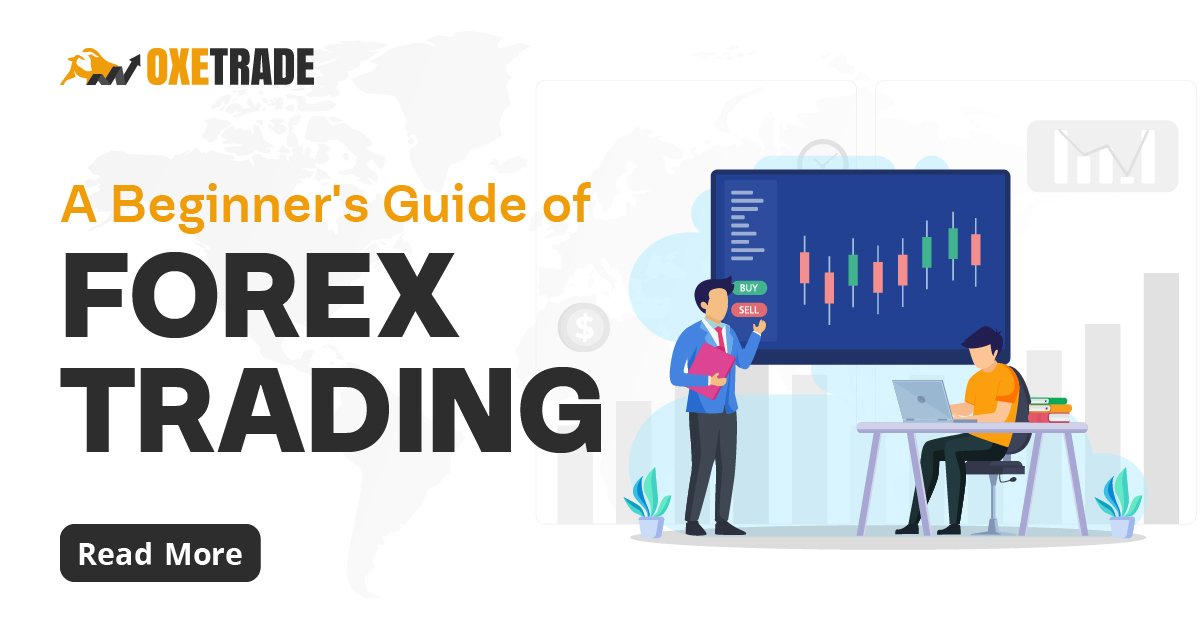Please allow us to collect data about how you use our website. We will use it to improve our website, make your browsing experience and our business decisions better. Learn more Learn More

The forex market also referred to as the foreign exchange market or currency market is a fast-paced and profitable financial market that spans across the globe. This detailed guide explores the complexities of forex trading, offering valuable information on how it operates, different strategies to consider, potential risks involved, and the rewards that come with it.
What Is Forex Trading?
The act of trading currency pairs to profit from fluctuations in exchange rates is known as forex trading. The forex market is open 24 hours a day, five days a week, unlike stock markets, giving traders the flexibility to seize opportunities whenever they arise. The USD and EUR are two of the main currencies traded on the currency market.
How Does Forex Trading Work?
The fundamental idea behind forex trading is the exchange of one currency for another at a fixed rate. The base currency is quoted first in currency pairs, and then the quote currency. For example, the base currency in the EUR/USD pair is EUR, and the quote currency is USD. The quote currency's exchange rate shows how much of the base currency must be purchased with one unit of the quotation currency.
Forex trading takes place in the over-the-counter (OTC) market, where buyers and sellers engage in transactions either directly or through intermediaries. This market is decentralized, lacking a central exchange, and functions through a network of banks, financial institutions, corporations, and individual traders.
Factors that Impact the Forex Market
- Economic Indicators: Various economic indicators like GDP growth, inflation rates, employment figures, and central bank policies have a significant impact on currency exchange rates.
- Interest Rates: Adjustments in interest rates by central banks to manage inflation and boost economic growth can affect currency valuations. Higher interest rates can attract foreign investments, leading to currency appreciation.
- Geopolitical Events: Political instability, trade disputes, and geopolitical tensions can introduce volatility in forex markets as investors respond to changing geopolitical scenarios.
- Market Sentiment: Trader sentiment, market expectations, and risk appetite all contribute to influencing currency prices. Positive sentiment can result in currency appreciation, while negative sentiment can lead to depreciation.
Forex Trading Strategies
Traders utilize a variety of strategies to effectively navigate the forex market and take advantage of price fluctuations. Some popular strategies include:
- Trend Following: Traders identify and follow the current market trends, taking long or short positions based on the trend's direction.
- Range Trading: In markets with defined ranges, traders purchase at support levels and sell at resistance levels, profiting from price fluctuations within the range.
- Breakout Trading: Traders enter trades when prices break through significant support or resistance levels, expecting sustained price movements in the breakout direction.
- Scalping: Scalpers aim to profit from small price movements by executing multiple trades within short timeframes, often holding positions for seconds to minutes.
Risks and Rewards of Forex Trading
While forex trading offers the potential for significant profits, it also involves inherent risks:
- Market Volatility: Currency markets can be highly volatile, with prices subject to rapid fluctuations due to economic, political, and geopolitical factors.
- Leverage: Thanks to leverage, forex traders can manage sizable holdings with comparatively little capital. Leverage raises the possibility of significant economic losses while magnifying potential gains as well.
- Lack of Regulation: In comparison to other financial markets, the forex market is less regulated due to its decentralized structure. Traders might be vulnerable to fraud, manipulation, and counterparty risk
- Psychological Aspects: Emotional restraint, perseverance, and discipline are necessary for successful forex trading. Impulsive trading decisions and losses might result from making decisions based on emotions.Despite these risks, forex trading offers numerous benefits, including liquidity, accessibility, diversification opportunities, and profit potential.